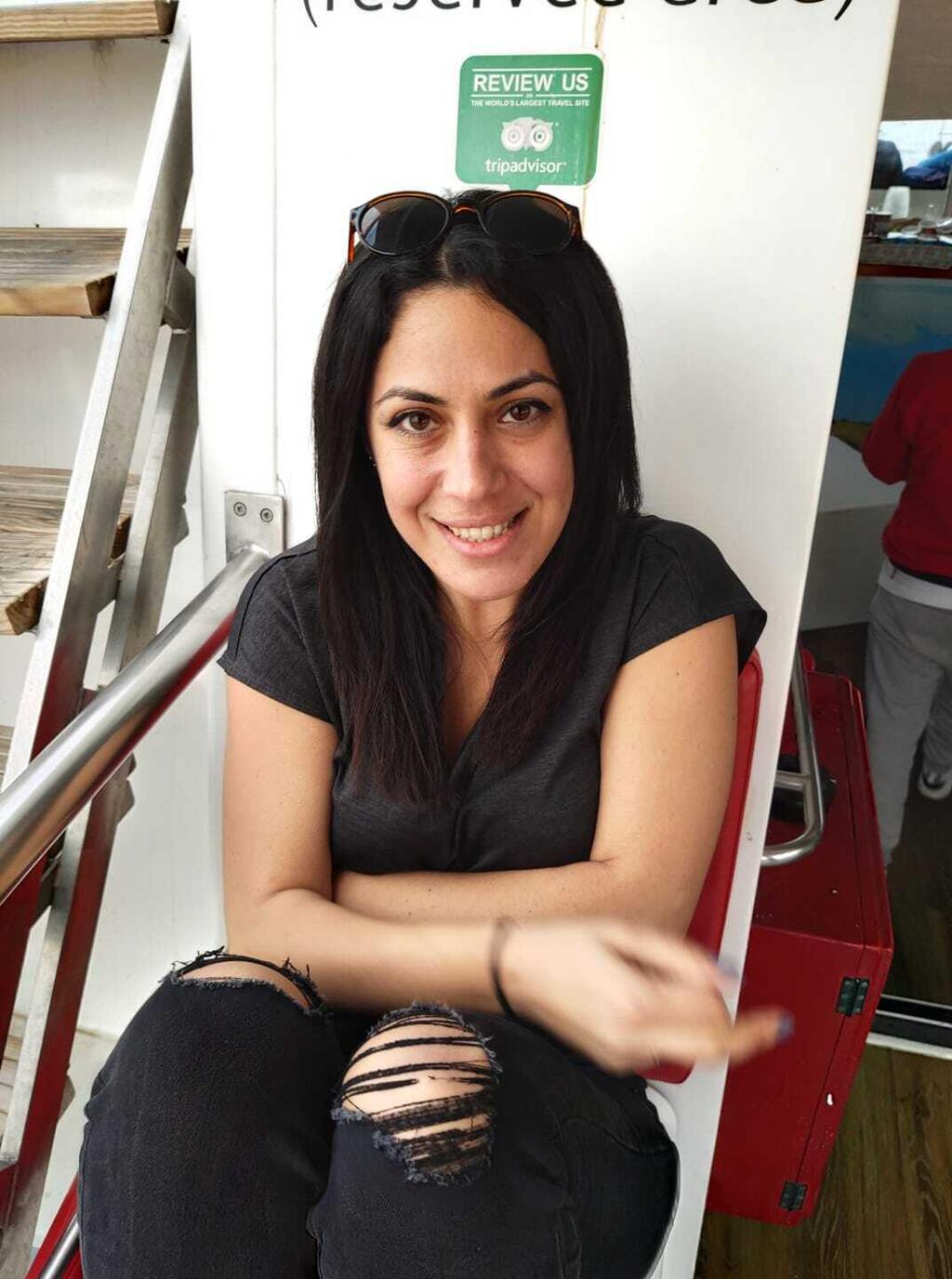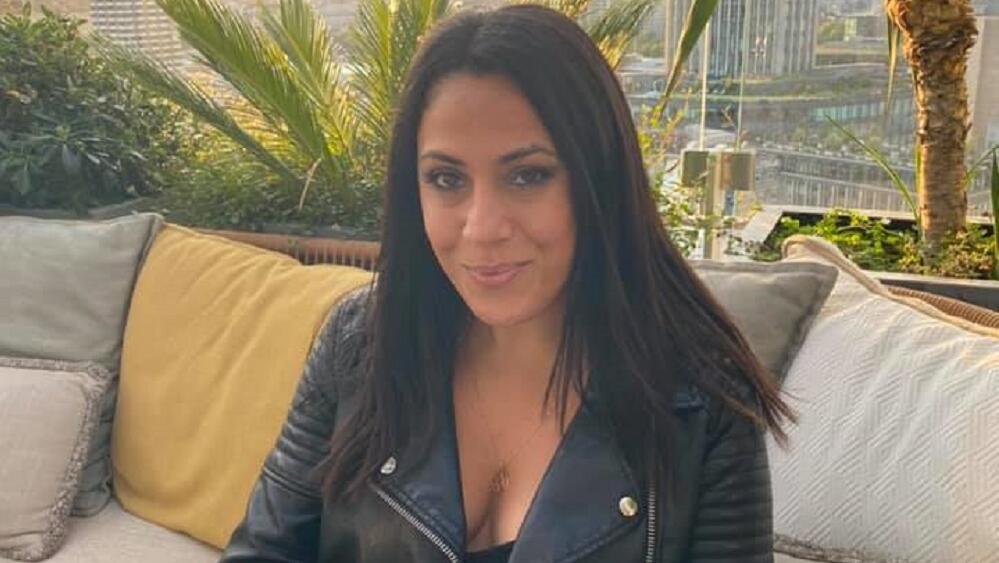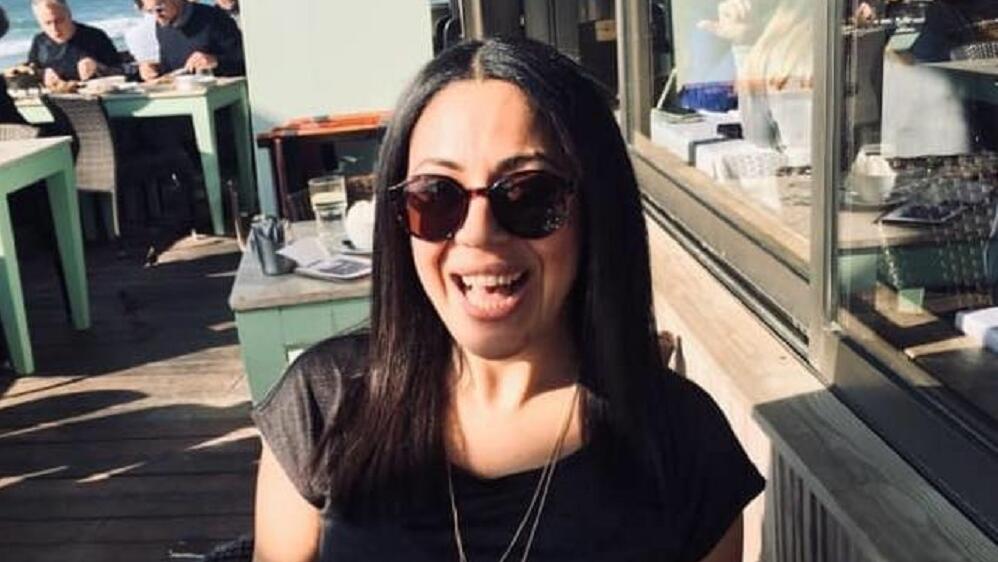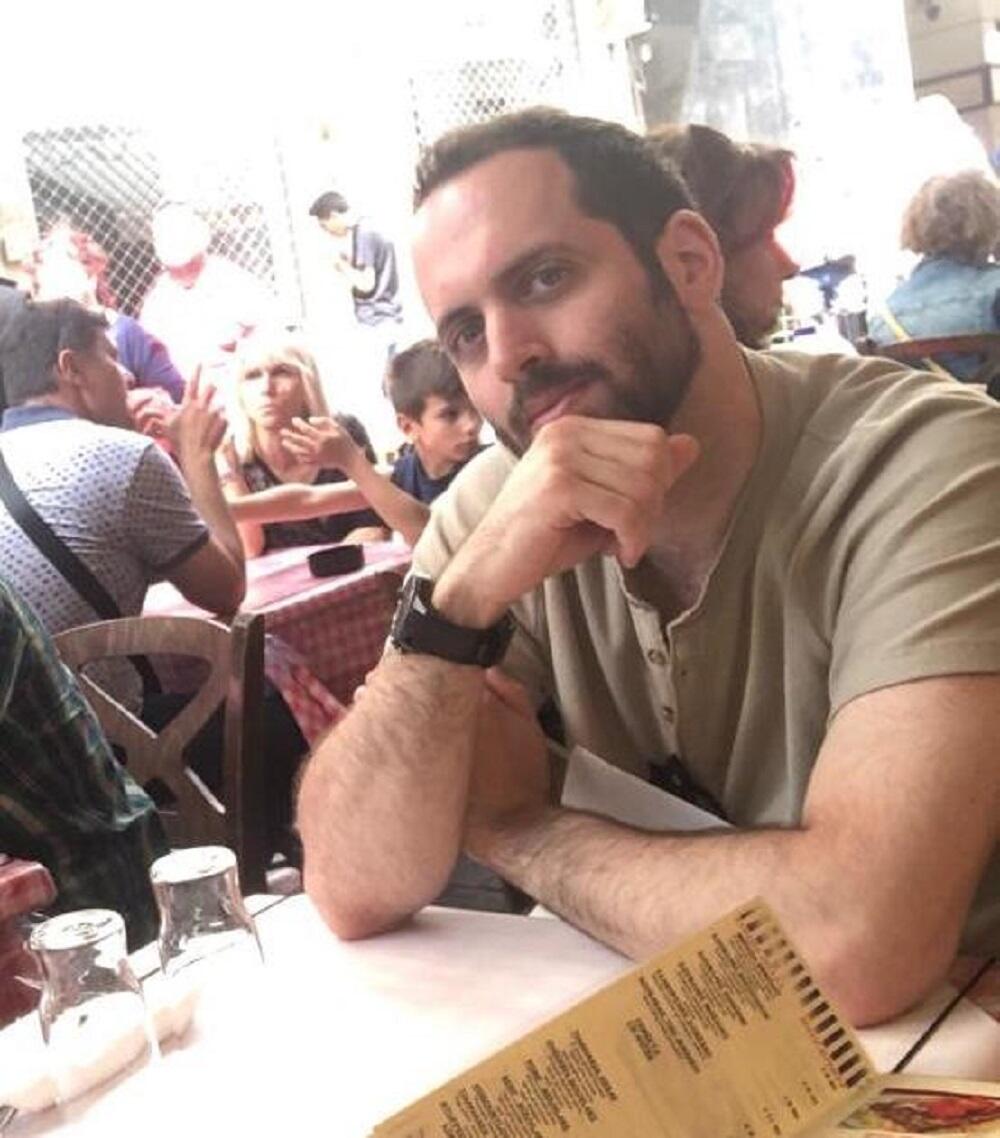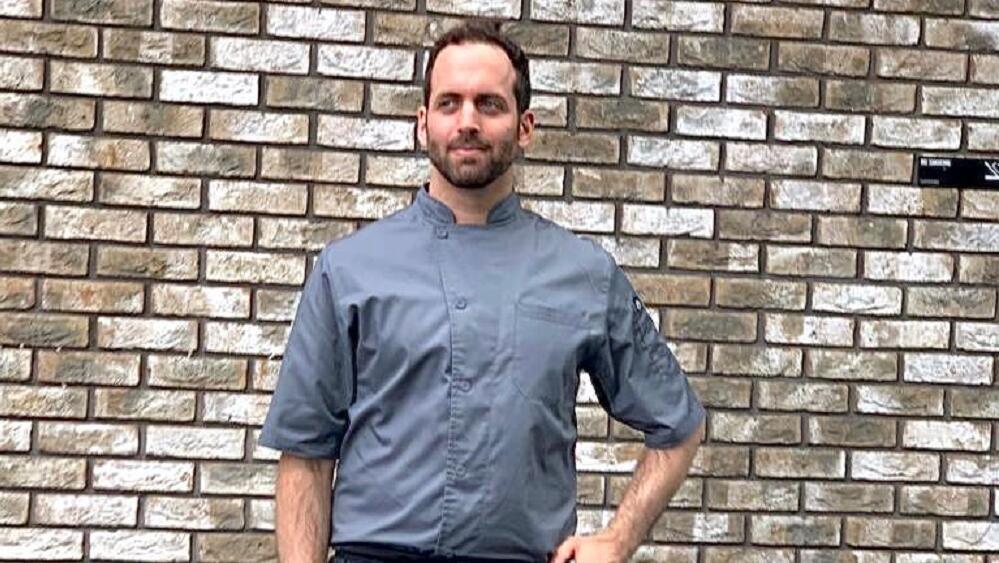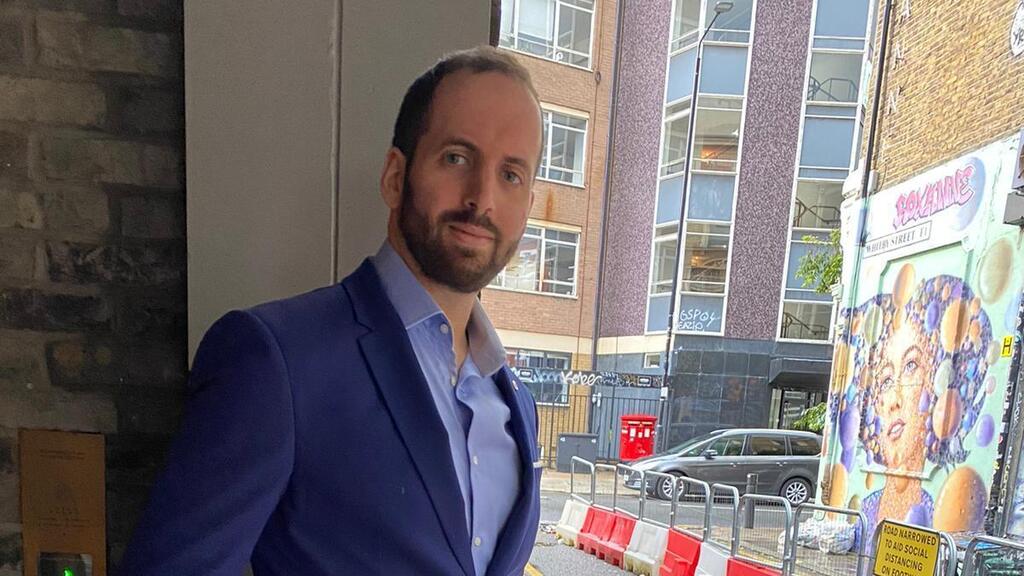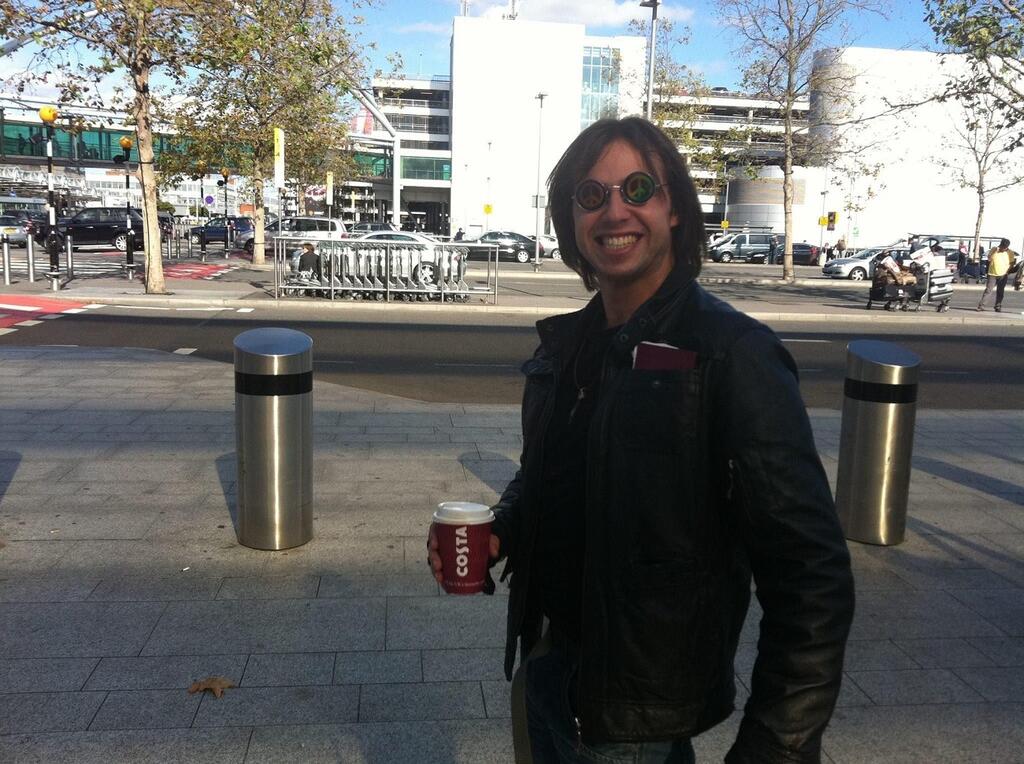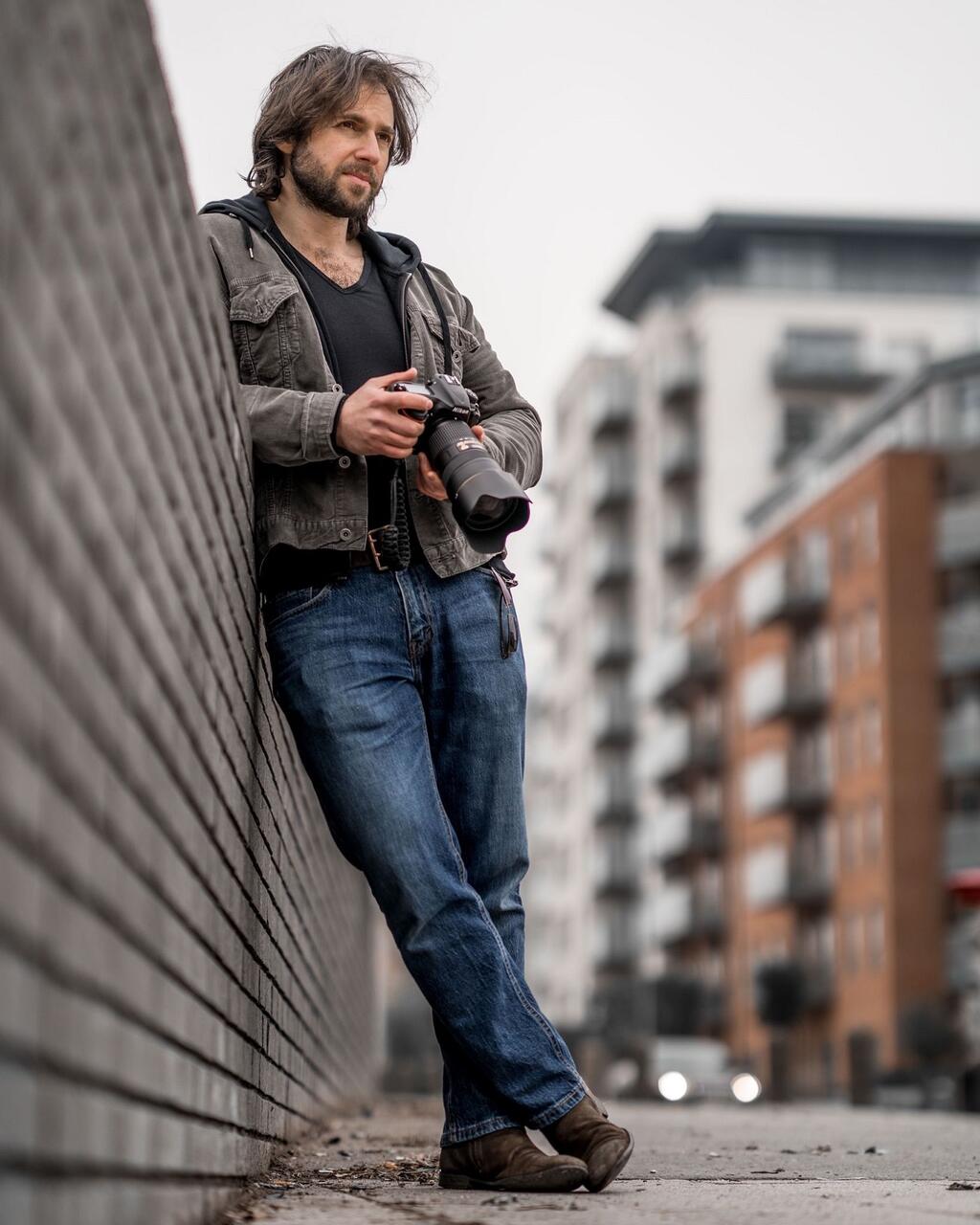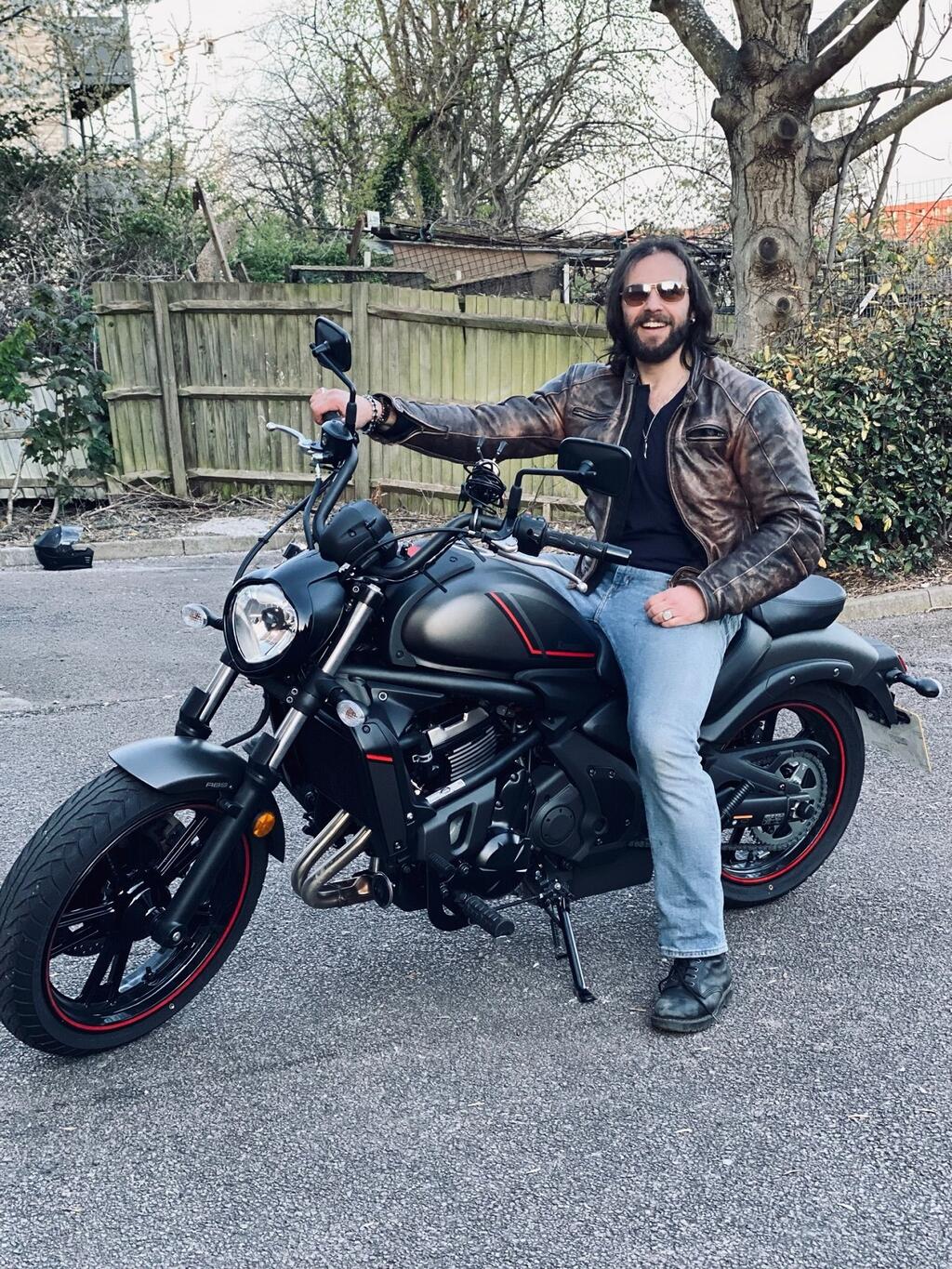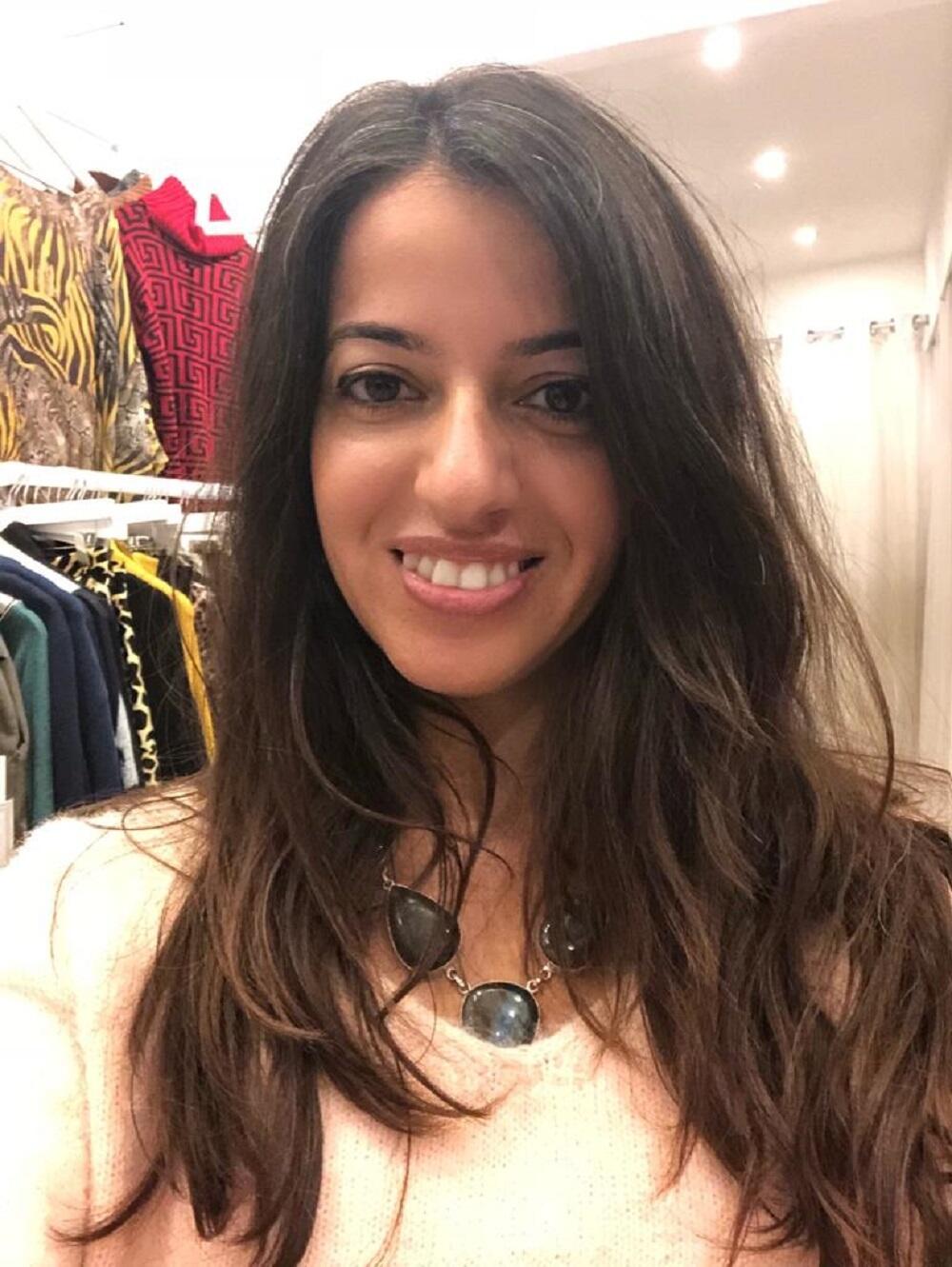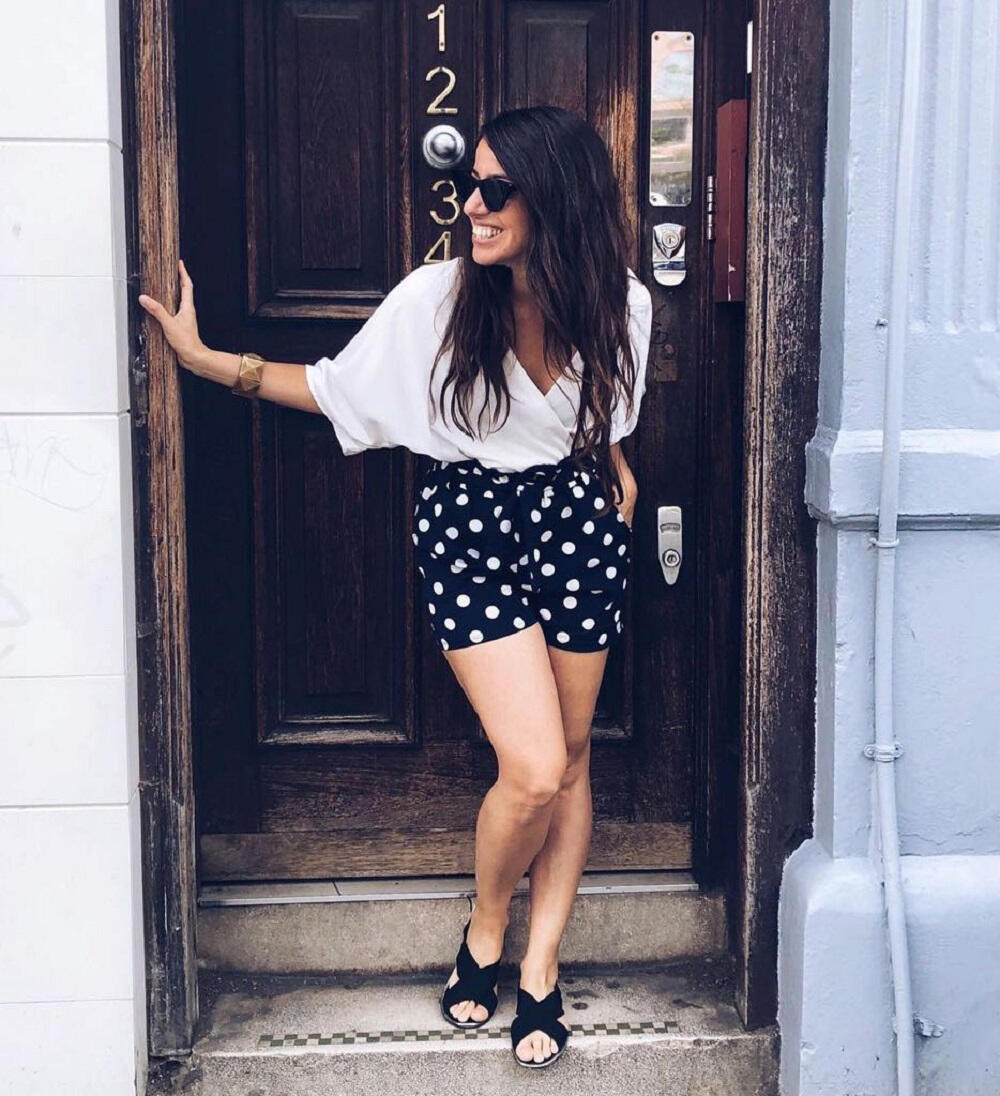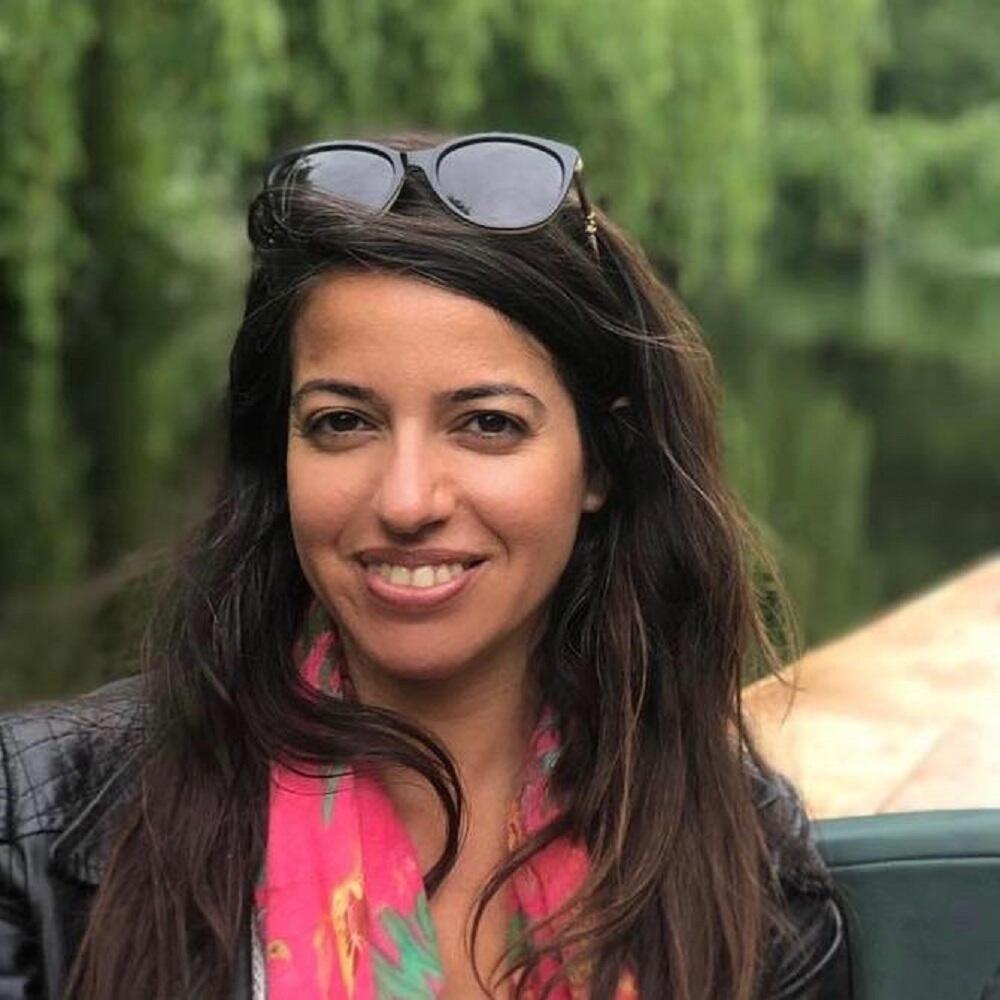On November 1st, 2004 at 8pm, I was sitting in a Tel Aviv café waiting for a date who was running late. The guy didn’t leave much of an impression – I don’t even remember his name. That evening is engrained in my mind, not so much because of myself, but it turned out to be pivotal in the life of a woman I love dearly. Her name is Avigail.
I met Avigail during my military service. After the army, we vaguely kept in touch by phone. Although I was waiting for a date that evening, I already had a one-way plane ticket to London.
At the café, I called Avigail, catching up to pass the time while waiting for my date to grace me with his presence. I told her that I was flying to London in two weeks’ time and that I’d already found a job selling in stands in the shopping centers. She asked, “Who are you going with?” I answered, “On my own.” My date showed up and that was the end of the conversation.
She messaged me at 2am: “Tell me, do you need someone to come with you to London?” I was tucked in bed and didn’t really understand what she wanted. I asked: “Like who?” She wrote back: “Me, you idiot.” I remember looking at the message and at the time and remember thinking that she must be tired or drunk or both. I didn’t for one moment think she was serious. Avigail was in a serious relationship. She was renting an apartment in the north of the country and was waitressing in a café. She’d created a life that she liked. Or so I thought.
I said to her: “Avigail, go to sleep. Let’s talk tomorrow.” The next day, I learned she hadn’t slept a wink. In the morning, she broke up with her boyfriend, handed in her notice at work, and told her landlord she was leaving the apartment.
Her spontaneity took me by surprise, but even then, I had no idea that this phone call was to change my life. I didn’t realize that my moving to London actually began at that very moment and that seventeen years later, Avigail would be a British citizen with an annoying cockney accent, an indifference to the cold and a love of dirty martinis, or that we’d be sitting in a café at Kings Cross and she’d be telling me her whole emigration story, from that fateful phone call and up until right now.
Avigail Ramazanov, 38, project manager
“I was 21-and-a-bit when the phone call came. When your date showed up, I physically hung up, but in my head, I hadn’t hung up at all. I was sitting on my own, thinking things through and I realized that I wanted a different life.”
They promised we’d work together in the stalls in the shopping centers but they split us up the day after we landed. I was sent to some god-forsaken town in the north of England and Avigail was sent to Reading. We both soon realized it wasn’t for us. We left and took off to the capital. We shared a small room in a block of apartments full of Israelis. I worked in sales, albeit less energetically than expected. Avigail waited tables.
“I worked in a kosher restaurant in Hendon. My boss was a chauvinist pig, and a millionaire who runs overpriced kosher restaurants for Orthodox Jews. I made terrible money and I lasted two months. I then found a job as a hostess at a sketchy club in town.”
At this point, our student visas – which were dubious anyway – expired. I came back to Tel Aviv, where I stayed. Avigail also came back to Israel and got a new, clean, passport with which she returned to the United Kingdom.
“I then met Joe, who was to become my husband and then ex-husband. Our relationship moved pretty quickly. After only a month, we moved in together. When my visa was up, he proposed.
“It takes a long time from the time you declare to the authorities that you’re getting married to the time they give you permission to get married. You need to give them a million proofs of your relationship, letters from family, pictures, and interviews. Joe had to prove that he could support me financially so that, understandably, we could show that we wouldn’t be a burden on social services.
“It was a long hard trail to the altar, but it gave me some kind of status. I was no longer illegal. I could leave the club and start looking for a sensible office job. I opened the newspaper and applied for all sorts of jobs that didn’t require any kind of certificate, experience or degree. I found a job as an office manager at a property law office.
"They liked me and sent me on all sorts of courses and training seminars providing me with various certificates and eventually they promoted me to the position of senior personal secretary. Two-and-a-half years later, while I was married to Joe and by which time I was completely legal in England, I left to join a technology company where I worked as a personal assistant and project manager for small projects.
"Things started snowballing from there. They sent me to a series of external organizations to specialize in all sorts of subjects connected to work. Five years later, as part of company cutbacks, I had to leave. Sadly, at the time, my relationship with Joe had reached a dead end. We got divorced and I left our shared home. I was now unemployed, divorced and with nowhere to live.”
With no home, no job, and no family, didn’t you think of coming back to Israel?
“The thought did cross my mind, but it passed very quickly. I didn’t want to give people a reason to say 'I told you so.' I wasn’t prepared to come back to Israel with my tail between my legs and decided that I could make it work, and come what may, I didn’t need a man to do it. I did need a good job and a place of my own to live.”
With friends, she rented a shared flat and found the job she’s still working at today.
“They saw me on LinkedIn, liked what they saw, called me in for an interview and offered me a job on the spot. I started out as a project manager, I was sent on all sorts of courses and training seminars and gradually advanced. I’m now in charge of one of the company’s largest projects.”
And on the romantic front?
“For years, I was single. I had a few short-term relationships which weren’t very serious. Two years ago, I fell in love with a German guy I met on Tinder. We now live together. We’re both immigrants here. Nine years ago, he came to London to study and stayed.”
What’s the hardest part about being an immigrant?
“A job. Definitely. It’s hard persuading an employer to trust someone with no passport, no family and no real affiliation to the place.”
Where would you be today if I hadn’t made that phone call?
(Laughing)... “Probably married with three children, working in the public health service or something like that. It’s the best decision I’ve ever made. I don’t see myself ever returning.”
Is everything really so perfect here?
I have a love-hate relationship with London. When you’re here, you hate everything. When you’re away, you miss everything. I love the culture, the good manners, the wonderful winters, the great theater, the shows, the fact that you can be whoever you want to be. I hate their apathy and indifference. Sometimes there are long lines and they all stand there quietly, no one saying a word. I feel like screaming and swearing and letting out all of my Israeliness. It drives me crazy.”
How do people react when they hear where you’re from?
“I haven’t heard much positive talk about Israel here. They generally shake their heads, looking at me with the that 'ah… the trouble-makers' look. During wars, I feel I have to be an ambassador and that I’m judged before I even open my mouth. At work, no one dares talk politics to me. Even when rockets were landing in Ramat Gan, no one asked me how my family was. No one wants to get involved.“
Oren King, 33, chef
Oren King was born and grew up in Kfar Saba. Following his military service, like so many his age, he took off for a trip to Australia. When he came back, it was clear to him what he wanted to do in life: He wanted to be a chef. He started working in the kitchen at “Gaucha” restaurant in Tel Aviv. A few months into working there, he realized that Tel Aviv wasn’t big enough for him.
“On my way home from work, I bought a one-way ticket to London. I just thought I’d try my luck there. My father’s British, so I have a British passport. I grew up speaking English, and England is a long way from Israel, so what could go wrong? I got on a plane.”
Despite the passport and the English, King discovered that London wasn’t really awaiting his arrival.
“I got to this dreadful shared apartment that I’d found through friends-of-friends. There were about ten roommates there. People were smoking in the showers… it was terrible. A few weeks later, I left for a proper flat with two flat-mates and started looking for a job in a kitchen. It was hard. I went to restaurants and asked if they were looking for cooks. I got a lot of 'no.' Then a friend told me about a chef opening a new restaurant. She introduced us and he gave me my first job.“
The chef was Ollie Dabbous and the restaurant he worked at was the famous “Hide” restaurant in Piccadilly - which earned a Michelin star only five months after opening. A year later, he moved onto critically acclaimed Japanese restaurant, “Roka” and then onto further well-respected London restaurants. He spent two years as head chef at Soho’s Polpo Italian restaurant.
“I drifted from chef to chef. For nine years, I worked long, hard hours in kitchens. My CV is quite impressive now. Right now, I don’t want to work in a restaurant. I want to open my own business as a private-functions chef.”
He has no plans to ever return to Israel. “For me, it’s fun here. London has a wonderful mixture of people, fantastic places to work, and great raw materials. I think that in recent years, Israel’s culinary scene has developed amazingly.
"But here there’s an abundance that’s hard to explain. For example, there’s nothing like Billingsgate fish market in Israel – and there never will be because Israel doesn’t have the demand for it. Also, the prices for raw materials in Israel really irritate me. A pineapple costs something like 35-40 shekels ($10-$12). Here in London, I buy an Israeli-grown pineapple for £5 ($6). Everything’s so expensive in Israel.”
Despite his criticism of Israel, he sometimes misses it. “I miss my family, my friends, my dog, the sunshine. I love the heat. I love sweating in August and yes, London’s greatest draw-back is the weather: In December-January-February, it’s freezing cold. The pavement‘s frozen over and I can’t even walk down the road. It drives me mad.”
What are the other disadvantages?
"Sometimes the British drive me insane. They’re very patronizing. There are a lot of Brexiteers who believe immigrants are taking their jobs, although it’s perfectly clear that immigrants do the jobs the British won’t do. They’re also rather cold. You’d never start up a conversation with a stranger on a train.
"In Israel, it’s totally OK. I remember when I was a soldier, a mother tried to fix me up with her daughter. That would never happen here. I feel lucky to be in an industry with a lot of immigrants. There aren’t a lot of Brits in the kitchen. We’re from all over the world, and that’s great.”
Mak Freeman, 33, photographer
Fourteen years ago, the movie “Into the Wild” was released. It’s based on a true story of an American young man who travels across the United States on a voyage of self-discovery. The film gleaned fans across the world who’ll tell you that how much it’s influenced their lives. One of these young fans was Mak Freeman.
Born in Lithuania, he made Aliyah aged two and grew up in Petah Tikva. He was injured one year and eight months into his army service and was discharged. A twenty-year-old boy with a single dream: to a be a film-star.
“I didn’t know where to start, but felt it wasn’t Israel. The film had inspired me to go and find out more about myself, to follow my dreams. I saw an on-line listing for working the stalls in shopping centers in London and said to myself, “Wow! They’re paying my flight, giving me a place to live, and I’ll have a job. Why not?” I wasn’t thinking about the money. I just wanted to use the opportunity to improve my English and see what London had to offer.”
He landed in London, aged 23 with a Lithuanian passport. “I’d never traveled abroad before. It was my first time out of Israel. I was very excited.” The reality, as it turned out, was less exciting.
“I lived in an awful place with room mates and I was terrible at sales. I wasn’t good at telling lies and I didn’t make any money. I held out for six months in London on the stalls and then moved to Manchester. At some stage, my bosses realized how bad I was and fired me. I was unemployed with nowhere to live. For two months, I crashed at the apartment of a local girl.
"She was a divorced single mother, nine years my senior. That, obviously, didn’t last long. I looked for work in Manchester for a few weeks. I’d have swept the streets, but I didn’t find anything. It’s not like in Israel where you can knock on doors, ask if they need help and they’ll tell you to show up tomorrow morning and we’ll see how it goes. It’s not like that in England. It’s all paperwork.”
Time went by and Freeman’s money was running out. He now faced the choice of either spending what was left of his money on rent, or using it to buy food and be homeless. He chose the latter, spending four days sleeping in a car-park with two suitcases.
“I chose to be homeless at a time when I could have gone back to Israel or ask my parents for money.
“True, my parents in Israel are comfortably off, but I didn’t tell them I had nowhere to live because I didn’t want their help. My mother always wanted me to come back to Israel and 'stop wasting my life,' but I was determined and decided that I just had to make it.”
When the streets of Manchester proved too disheartening, Freeman sold his suitcase, bought a rucksack and set out from Manchester, hitchhiking to Scotland. He slept in a sleeping bag someone had given him at a petrol station. “I got to Scotland two and half weeks later. Although I was homeless, I had a camera and a phone. I looked great.”
In Scotland, he worked on a farm, went to festivals and played for pennies at a bar. When Scotland had run its course, he went back to London to give it another try. He worked a series of temporary jobs, moved on to Ireland, and again back to London.
Only then, did he find his first “grown up” job: logistics manager in a shop - with pay reasonable enough for him to rent an apartment and enjoy the life London has to offer: restaurants, art, bars and clubs. He was also involved a little in cinema. “I even had a small part in the Marvel series 'Lucky Man'. I’m very proud of that.”
With his hopes of becoming a screen actor fading, Freeman found himself increasingly interested in fitness and decided to make his hobby a vocation. This time around, he did ask his parents for help. “They gave me money for a fitness instructor training course. They’d have much preferred to buy me a ticket back to Israel, but I insisted and they agreed to help me with my training.”
Freeman finished the course and spent seven years as a fitness instructor in London. Then came COVID. The gyms closed and he found himself out of a job. This time, he quickly bounced back.
“Even without COVID, I felt I wanted to move on from fitness as I missed using my creative side. I bought a camera and started taking pictures of everything. I somehow got into sports photography. I now have a very successful business and I take pictures all over England, mainly at body-building competitions.”
Six months ago, to escape the noise of the capital, he moved to Bristol. He doesn’t plan on returning to Israel. After a decade in Britain, his parents have also gotten used to the idea.
“My parents are traditional Russians, whose dream was that I would be an accountant or a lawyer. Over the years, they kept telling me to come back and I’d always respond: 'Come back to where? To what?' I love Israel and I miss the atmosphere and the people, but it’s not for me.
“My greatest regret leaving Israel is being away from my sister. She’s nine years younger than me. When I left, she was fourteen. I didn’t see her grow up, join the army, become a young woman. We’re in touch, but I wasn’t with her in those years. She once told me that she mentioned me to her friends who were surprised to hear she had a brother. I was really upset.
“I have a love-hate relationship with England. England is great for culture, tradition and scenery. I’ve recently bought a motorbike and I ride around Bristol and the surrounding area discovering lovely villages and hamlets. I really hate the weather here. I haven’t gotten used to it and I never will. I’m Israeli. I’m from the desert. I also don’t like how hard it is to make friends here. People sit in the pub with a beer and don’t talk to you. Maybe they don’t trust strangers. I sometimes feel that, because I’m not born-and-bred English, I’m not really accepted.”
Keren Oknin, 38, women’s clothing business owner
Keren Oknin from Holon landed aged 22 at London’s Heathrow Airport in 2004. She’d traveled the Far East and wanted to see a bit more of the world.
“I hadn’t seen enough. The trip opened my eyes and my heart and I wanted to see more. After my trip, the whole world was 'wow' for me.”
Her mother didn’t want her to go traveling. As a mother, who knew her own daughter, she knew deep down that if this girl gets on a plane again, she’s not coming back. Seventeen years later, we can safely say that mother was right.
“When I came back to Israel, I was at a crossroads: I needed to decide whether to rent an apartment in Tel Aviv or get on another plane. One day, I went to visit some friends with a friend I’d travelled with in the Far East. A few of us, who didn’t really know each other, were sitting around talking about going to London to make some money over the Christmas period. I was young, after my military service. I didn’t care where we were going. Whatever you say, I’m in. It was a split-second decision. We were in.”
Two weeks later, she and her friend landed in London, and straight on to a dormitory where everyone slept together. Her employer, an Israeli, brought them bags full of little knick-knacks and flyers with pictures of young children, and sent them off to get people to donate, ostensibly for an orphanage.
“We had to knock on doors, give a flyer to the person who answered the door, tell them about the institution and poor children and give them some kind of tiny present from the bag if they donated. We were four girls running around London’s fanciest neighborhoods in the freezing cold in London in November. It was really hard.”
It took them a week to realize it was a scam. There was no orphanage and the donations went straight into the pockets of their greedy employer, taking advantage of the British kind nature and good manners, as well as the naiveite of the girls who just wanted to work. When they realized the whole operation was fraudulent, they left at once.
They made their way to Golders Green, a north-London suburb with a high concentration of Jews and Israelis. They spent the last of their cash on a hotel room and started looking for work.
“We didn’t call our parents for help, because they didn’t have anything to give at the time. We also didn’t want them to worry. We wanted to make it on our own.”
Three of the girls found jobs as waitresses at Israeli restaurants. The fourth began babysitting. A few months later, our tourist visas ran out and the girls were fed up of being illegal in a foreign country and the adventure was over for them. Keren, however, decided to stay.
“In the months I was living there, I met Laso, an immigrant from Hungary who, in time, became my husband. Laso initially worked first as a painter and decorator, but eventually opened his own business. He had a European passport and Britain was part of the European Union (EU) at the time, so he was 100% legal. We lived together for two years. I was frustrated with the transient nature of my existence in Britain. I was fed up of living illegally. I wanted to move forward. I wanted a bank account. I wanted to study and do things. I decided to come back to Israel.
“I lasted only a few months in Israel. I missed my London life, my friends, the feeling of freedom. When you emigrate, you’re born all over again. I’d built myself a new life and I missed it. I also missed my boyfriend. We were on the phone all day long. In one of the conversations, he suggested I return to London and we get married. At first, I was a bit stressed out by the getting married part, but this was the only way to be with him and to make my status in Britain legal. So, I said yes.”
She went back to England and they got married “in the presence of two witnesses, one of whom we didn’t know and the other didn’t speak English. It was funny.”
Keren began the drawn-out process of applying for citizenship. One can only apply for responses after five years of marriage, but before those five years were up, the couple had already started divorce proceedings. Keren did eventually get a response thanks to the successful business she’d opened, proving financial independence.
How does a girl from Holon set up a successful business in London?
"Slowly and with caution. When I went back to London the second time, I worked on the stalls in the shopping centers. I was good at sales and the following season I was promoted to a management position. Two years later, I left and set up my own stall at the O2 Center, a large shopping center in North London. I was selling hair grips for £12 and was making fabulous money. The product was a hit both among tourists and locals. My profits were good. After the hair grips, I brought in scarves, pashminas and clothes. I had a good location and my stall was a great success.
“I also opened a market stall on Portobello Road Market in Spitalfields. By this stage, I had three branches employing four workers. I started taking classes at an art college and then onto a BA program in Interior Design. Although I loved the course, I dropped out after just one year because the business was taking off and I couldn’t juggle my studies and the business. I was responsible for everything – bringing in the merchandise, organizing and pricing it, salaries, marketing and advertising, moving stock from one branch to another... it was all becoming too much.
“After two years, the shopping center management asked me to clear my stall, so I started selling my clothing in a stall inside a café in West Hampstead. It went well for a few months and then I rented the floor beneath the café. I fixed it up, designing the interior myself, transforming it into a lovely boutique hidden inside a café, surprising customers. Word that there was a 'secret boutique' under the café quickly spread through West Hampstead. I took on the name and called the shop 'The Secret Boutique.' I closed all the other branches and focused only on the boutique. The café was sold two years later and again, I had to leave.”
She started looking for a shop that couldn’t suddenly be closed. She found a place. But this too, didn’t last long.
“I had no experience renting business properties and I was easily tricked. After I’d moved all my stuff, it turned out that the man who rented me the property, wasn’t the owner. He had rented it from someone else and lied to me. I had to move again. I put in a request for a different shop in a great location. There was a lot of interest in this shop. I did all I could to make the landlord chose me. A few months later, it all came together. I called the shop 'La Boutique Secret'. I was there for eight years. The work was hard and a great challenge. I put my heart and soul into it.”
And then came the next challenge – the pandemic. “When COVID started, I decided to close. I felt it was enough and that I wanted to do other things.”
She’s now taking some time out while supporting her partner’s business. He’s also Israeli and has been living in England for sixteen years. They met five years ago and have bought a home in the North London suburb of Borehamwood, a half hour train journey into London.
London is fast and demanding, and we were a bit bored of it. We want to have a family and we don’t see that happening inside London. Borehamwood is like a little village. There are horses and open fields. Everything’s much calmer here.”
Do you like England?
“Yes, very much," she says.
“Firstly, the freedom of expression that you don’t get Israel. You can walk down the road with your underwear on your head and no one will stop and say, 'Madam, you’ve got your underwear on your head.' Everyone does their own thing. You can do whatever you want, be whoever you want and no one will judge you.
“Secondly, in London I’ve met people from all over the world and I’ve been exposed to a lot of different cultures in one place. Every friend comes with a whole new world, a new culture, a new language. You end up learning a lot, your heart and mind open up. You have more compassion towards people. You see and accept different customs. I believe it’s made me develop into who I am today.
“Thirdly, there’s a lot of green space here, and that’s very important for me. I’ve always made sure I live near a park or a forest. It’s easily done in London.
“And one last thing: They’re polite and courteous, and that’s very pleasant.”
You carefully tend to say “they.” You don’t feel you’re one of them?
“I don’t feel British. I’ve kept my Israeli accent. Yes, I’ve adopted a lot of good things. But me? British? No.”



